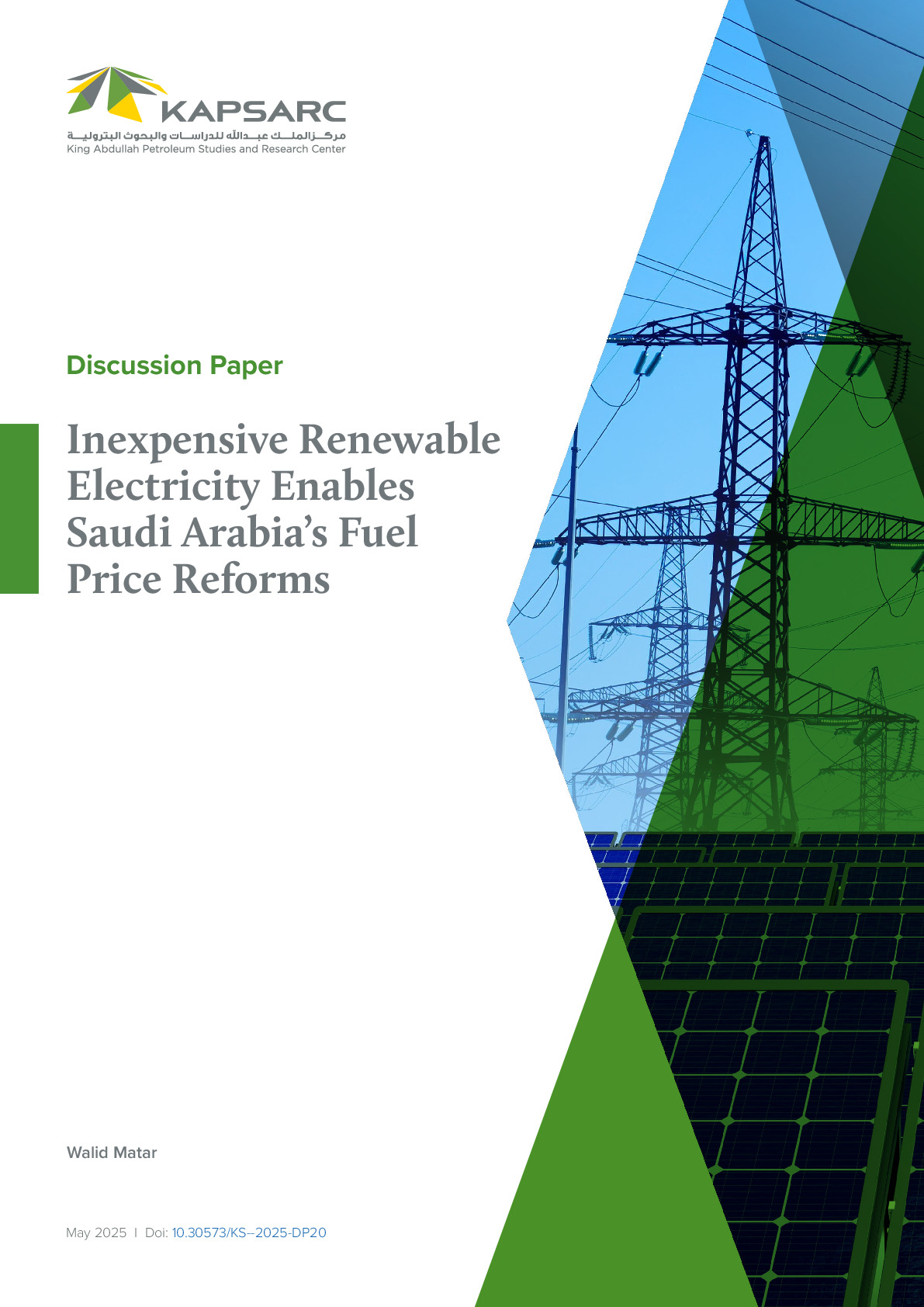Empirical estimates of fuel demand changes to price variation are based on historical consumption and prices, and can be applied as a single point estimate to a wide range of price movements. However, if fuel prices are set outside the boundaries of historical changes, policymakers may be concerned as to the validity of the empirically assessed price elasticity. We have developed a transport model to provide a techno-economic estimate of the price elasticity of fuel demand. It incorporates consumers’ choices as a result of several factors, including fuel substitutes, available transport modes, income, value of time and magnitude of price change.

Principal Fellow- Oil & Gas
Walid works on modeling energy systems. He is developing or has developed the following components of the KAPSARC Energy Model…
Walid works on modeling energy systems. He is developing or has developed the following components of the KAPSARC Energy Model (KEM): electric power generation, oil refining, petrochemicals and fertilizers, cement production, and iron and steel. He is also working on a bottom-up residential electricity use framework that merges microeconomics with the physical laws governing electricity use.
Expertise
- Energy Systems Modeling
- Optimization
- Electricity Prices
- Energy Efficiency and the Interdisciplinary Connection Between Energy Economics and Engineering
Publications See all Walid Matar’s publications

Inexpensive Renewable Electricity Enables Saudi Arabia’s Fuel Price Reforms
Empirical estimates of fuel demand changes to price variation are based on historical consumption and…
20th May 2025
Costs of Switching Fuels and Manufacturing Processes for Construction Materials Companies in Saudi Arabia
Empirical estimates of fuel demand changes to price variation are based on historical consumption and…
6th May 2025
